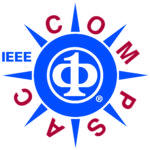COMPSAC 2023 Symposium on Software Engineering Technologies & Applications (SETA)
Technical Program
*= in-person presentation in Torino
An Ontology-Centric Approach for Network Security Situation Awareness
Yixuan Wang, Bo Zhao, Weidong Li and Lingzi Zhu
A Full-fledged Commit Message Quality Checker Based on Machine Learning
David Faragó, Michael Färber and Christian Petrov
Identifying CC Test Cases with Multiple Features Extraction for Better Fault Localization
Yonghao Wu, Shuaihua Tian, Zezhong Yang, Zheng Li, Yong Liu and Xiang Chen
Sound Predictive Fuzzing for Multi-threaded Programs*
Yuqi Guo, Zheheng Liang, Shihao Zhu, Jinqiu Wang, Zijiang Yang, Jinbo Zhang, Wuqiang Shen and Yan Cai
Prediction of Bug Inducing Commits Using Metrics Trend Analysis
Parul Parul, Kostas Kontogiannis and Chris Brealey
A Modular and End-to-End Profile-Guided Optimization Framework for Android Kernels
Keyuan Zong, Baojian Hua, Yang Wang, Shuang Hu and Zhizhong Pan
Revisiting “code smell severity classification using machine learning techniques”
Wenhua Hu, Lei Liu, Peixin Yang, Kuan Zou, Jiajun Li, Guancheng Lin and Jianwen Xiang
EDP-BGCNN: Effective Defect Prediction via BERT-based Graph Convolutional Neural Network
Hao Shen, Xiaolin Ju, Xiang Chen and Guang Yang
SMT-Based Verification of NGAC Policies
Vladislav Dubrovenski, Erzhuo Chen and Dianxiang Xu
Investigating Code Generation Performance of ChatGPT with Crowdsourcing Social Data
Yunhe Feng, Sreecharan Vanam, Manasa Cherukupally, Weijian Zheng, Meikang Qiu and Haihua Chen
SGS: Mutant Reduction for Higher-order Mutation-based Fault Localization
Zheng Li, Luxi Fan, Hengyuan Liu, Yong Liu, Doyle Paul, Haifeng Wang and Xiang Chen
A Self-attention Agent of Reinforcement Learning in Continuous Integration Testing
Bangfu Liu, Zheng Li, Ruilian Zhao and Ying Shang
TBCUP: A Transformer-based Code Comments Updating Approach
Shifan Liu, Zhanqi Cui, Xiang Chen, Jun Yang, Li Li and Liwei Zheng
A Tool to Generate Diverse Personas for Children and the Elderly for Software Development Projects
Tanjila Kanij, Xiaojiao Du, John Grundy, Anu Madugalla and Devi Karolita
Towards a Service-based Adaptable Data Layer for Cloud Workflows*
Yuandou Wang, Nikita Janse, Riccardo Bianchi, Spiros Koulouzis and Zhiming Zhao
The Software Engineering Technology and Applications (SETA) symposium is the flagship IEEE symposium on software engineering technologies, and an integral part of the IEEE COMPSAC conference. We encourage submissions on the use of data driven intelligence technologies to support software engineering activities, techniques and tools to cope with technical challenges of intelligent world development and pervasive computing in general. The submissions are expected to be high quality research papers that describe original, unpublished work on any topic related to software engineering technology including but not limited to empirical and theoretical work on intelligent software engineering, conventional software engineering and also work on emerging topics.
Authors are invited to submit original, unpublished work presenting research and novel computer applications in full-paper format (10 pages, inclusive of figures, tables, appendices, etc). The review and selection process for submissions is designed to identify submissions that break new ground and provide substantial support for their results and conclusions as significant contributions to the field. Submissions will be selected that represent a major advancement in the subject of the symposia. At least one author of each accepted paper is required to register to the conference and to present the paper in person at the conference.
Please note that SETA submissions should also follow policies from the COMPSAC conference (e.g., plagiarism). Simultaneous submission to other publication venues is not permitted except as highlighted at COMPSAC JC/CJ page. Accepted papers may be invited to prestigious journal(s) for extension after consideration from the COMPSAC conference.
Paper Templates
IEEE Paper templates are available in MS Word 2003 and LaTex. All submissions must use US 8.5×11 letter page format.
Important Dates
Main Conference/Symposium
Main conference/symposium papers due: 15 January 2023Extended to 15 February 2023
Notification: 7 April 2023
Camera-ready and registration due: 7 May 2023 Updated: 18 May 2023
Journal then Conference Submissions
Due date: April 7, 2023
Notifications: April 30, 2023
Workshops, Fast Abstract, SRS Programs
EXTENDED: Workshop papers due: 21 April 2023
UPDATED: Notifications: 7 May 2023
UPDATED: Camera-ready and registration due: Updated: 18 May 2023
Submission Link
Please submit your paper on EasyChair
IEEE Conference Publishing Policies
All submissions must adhere to IEEE Conference Publishing Policies.
IEEE Cross Check
All submission will be screened for plagiarized material through the IEEE Cross Check portal.
Symposium Chairs
Junhua Ding, University of North Texas, USA
Email: juhua.ding@unt.edu
Chang-ai Sun, University of Science & Technology Beijing, China
Email: casun@ustb.edu.cn
Program Committee
Liang Wang, Nanjing University
Michiharu Takemoto , International Professional University of Technology in Tokyo
Yu Jiang, Tsinghua University
Yu Pei, The Hong Kong Polytechnic University
Chunrong Fang, Software Institute of Nanjing University
Jun Ma, Nanjing University
Xiaoyuan Xie, School of Computer Science, Wuhan University
Yepang Liu, Southern University of Science and Technology
Lingzi Hong, University of North Texas
Tozammel Hossain, University of North Texas
T.H. Tse, The University of Hong Kong
Daniel Rodriguez, The University of Alcalá
Gwen Salaün, University of Grenoble Alpes
Xudong He, Florida International University
Rui Abreu, INESC-ID & U.Porto
Y.T. Yu, City University of Hong Kong
Francesca Lonetti, CNR-ISTI
Wilkerson L.Andrade, Federal University of Campina Grande
Everton Alves, Federal University of Campina Grande
W.K. Chan, City University of Hong Kong
Shuyi Wang, Tianjin Normal University
Myoungkyu Song, University of Nebraska at Omaha
George Kakarontzas, University of Thessaly
Osamu Mizuno, Kyoto Institute of Technology
Naoyasu Ubayashi, Kyushu University
Guowei Yang, The University of Queensland
Katsuhisa Maruyama, Ritsumeikan University
Peng Wu, Institute of Software, Chinese Academy of Sciences
Xuansong Li, School of Computer Science and Engineering, Nanjing University of Science and Technology
Yunhe Feng, University of North Texas
Yi Wu, University of Tennessee, Knoxville
Patricia Machado, Federal University of Campina Grande
Franz Wotawa, Technische Universitaet Graz
Lunjin Lu, Oakland University
Xiaodong Liu, Edinburgh Napier University
Xiangping Chen , Sun Yat-sen University
Domenico Amalfitano, University of Naples Federico II
Haihua Chen, University of North Texas
Hong Zhu, Oxford Brookes University
Xiaojuan Zhang, Southwest university of China
Zhenyu Zhang , Institute of Software, Chinese Academy of Sciences
Zhiquan Zhou, University of Wollongong
Fevzi Belli, Univ. Paderborn
Gaohui Cao, Central China Normal University
Jifeng Xuan, Wuhan University
Alexander Bolotov, University of Westminster
Xiao He, University of Science and Technology Beijing
Jigang Liu, Metropolitan State University
Zhongyi Wang, Central China Normal University
Xiaobing Sun, Yangzhou University
Huanhuan Zhao, University of Tennesse at Knoxville
Wensheng Dou, Institute of Software, Chinese Academy of Sciences
Junjie Chen
Eda Marchetti
Venkat Gudivada

